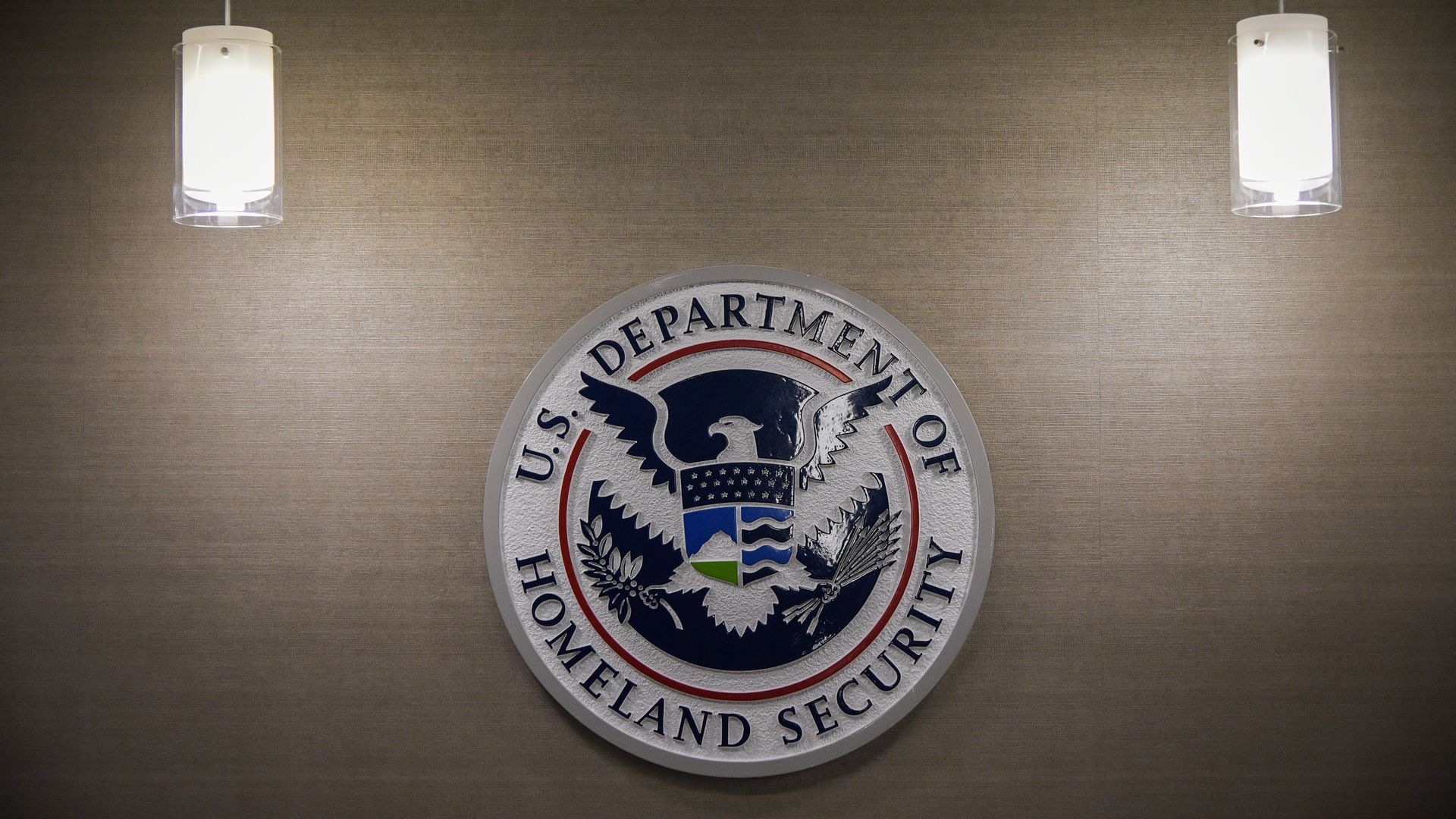Jul 31, 2020 - Politics & Policy
Trump admin to increase fees for asylum and naturalization applications
Add Axios as your preferred source to
see more of our stories on Google.

The Department of Homeland Security's seal. Photo: Salwan Georges/The Washington Post via Getty Images
